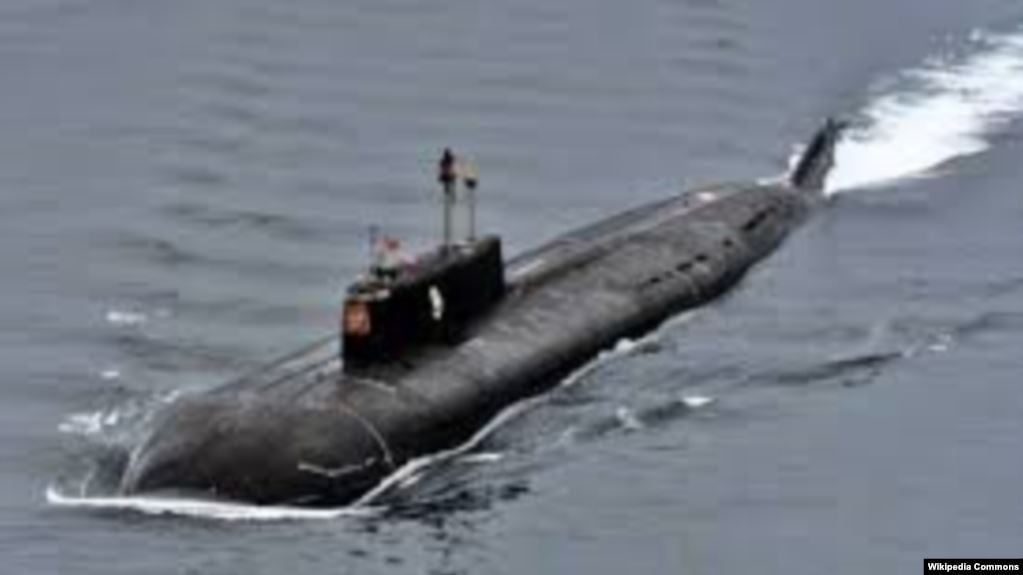
By Polygraph
“On August 15, Norway offered help in the rescue operation. The offer was accepted by the Ministry of Defense.”
Misleading
Several nations, including the U.K., the Netherlands, and the U.S., offered immediate help, but Russia refused
In a feature article headlined “The Death of the Nuclear Submarine Kursk,” the Russian state news agency RIA Novosti chronicled the disaster which occurred 19 years ago, leaving a permanent stain on Vladimir Putin’s presidency.
The Oscar II class nuclear submarine Kursk (PL850) sank on August 12, 2000 in international waters of the Barents Sea while taking part in an exercise of Russia’s Northern Fleet. All 118 people on board were declared dead after the two-week-long rescue operation proved unsuccessful.
Russia’s initial decision to not accept any foreign aid in the first, most critical days of the rescue operation was widely assessed as the main error leading to the deaths of the entire crew and on board personnel observing the exercise.
The decision was attributed to Vladimir Putin, then only six months into his first presidential term. Putin has been harshly criticized, both in Russia and abroad, for mismanaging the disaster response. Putin, who was reportedly spending time at a Black Sea resort when news of the disaster broke, only returned to Moscow on August 19, when he told the nation that hopes for saving any of the Kursk crew were fading.
The disaster captured global headlines at the time and was meticulously documented, providing material for several bestselling books as well as the 2018 movie, Kursk, produced by the French company, EuropaCorp.
The recent RIA Novosti account of the tragedy omits the same facts that Russian state media were prohibited from reporting at the time of the disaster. These omissions include immediate offers of assistance from the U.S., U.K., and Netherlands, as well as the fact that Russia had initially refused any foreign aid.
“Britain, the U.S., and Norway offered publicly and, reportedly, through backchannel communications to aid in location and rescue efforts. In a move that would mar the early days of Putin’s leadership, the Northern Fleet waited until Wednesday — four days after the Kursk sank — before accepting any help from foreign powers. Norwegian and British rescuers wouldn’t arrive until that Saturday, a week after the accident,” the Intercept, an investigative outlet, reported in May 2019, citing the NSA archives leaked by a former subcontractor Edward Snowden.
The facts RIA Novosti’s report conveniently omits are the same that the observers say were most damaging to Vladimir Putin’s reputation, even two decades after the tragedy.
The AP archive footage of the meeting between the Russian State rescue committee and the relatives of the Kursk team members on August 15, 2000 exemplifies how the Russian state handled the crisis.
“The only reason they are not rescued yet is because you want to save the submarine, but not the people, we all know that,” a woman can be heard shouting in Russian.
The footage shows the forced sedation of a crew member’s mother, followed by the removal of all foreign journalists from the meeting by uniformed personnel with Russian police and military insignias, assisted by men in civilian clothes.
On August 22, Putin met with the relatives of the dead crew members in the small city of Vidyayevo, which hosts naval bases.
Speaking over the angry shouts from the hall, Putin claimed that no Russian or foreign rescuers were technically capable of reaching those on board the submarine in time.
That assessment has been refuted by experts.
“If Putin had accepted Western offers of aid right away, it is certainly plausible that a combination of Norwegian, British, and American forces could have opened the submarine in time to rescue the handful of survivors. After all, it took the Norwegians only a few hours to open the rear escape hatch of the Kursk once they were finally permitted to begin their salvage mission,” Mark Kramer, a Harvard University professor wrote in a PONARS memo in September 2000.
Putin only approved rescue aid from Norway and the U.K. a week after the Kursk sank, when it was too late to save the lives of those on board.
“As for the Russian government’s response to the disaster, the deluge of unabashed lies and disinformation reveals something more than just a temporary bout of panic, to which almost any leader can succumb,” Kramer wrote. “It reveals the engrained Soviet mentality of so many of the officials whom President Vladimir Putin has brought to power, especially those from the internal security apparatus, which Putin formerly headed. Unable to deal with an emergency, they resorted to a Soviet-style cover-up.”
Two decades later, Polygraph.info finds that Russian state media is continuing to mislead the Russian public on the Kursk tragedy.






